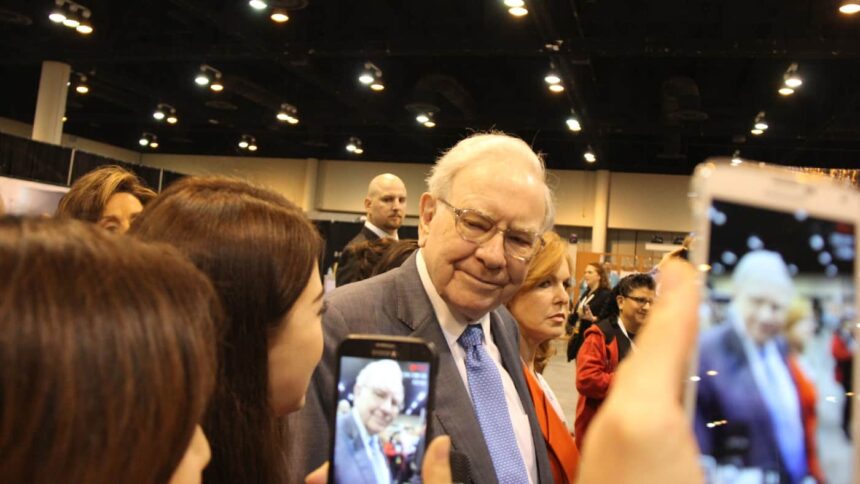
Image source: The Motley Fool
Billionaire Warren Buffett is well-known as one of the most successful general investors the world has ever seen.
So who wants to invest like him? I do, for sure. But investors don’t always have the millions to commit to stocks and shares like he does. However, there’s a hack we can use to approximate his performance.
The portfolio size problem
Let me explain. Buffett is known for focusing funds on his best stock ideas. Sometimes he waits for ages to find them. But when he does, he grabs the idea by the throat and piles money in week after week and sometimes for years at a time.
And that approach often leads to some concentrated positions in his portfolio. For example, his company Berkshire Hathaway now has just under 50% of its invested equity assets in just one stock.
The company with almost half of Berkshire’s stock investment funds is Apple. However, the share price has risen a fair bit while he’s been holding it. Nevertheless, Berkshire Hathaway has invested billions into Apple.
However, there’s an important point to consider. I watched a video of Buffett. And he said Berkshire Hathaway’s total return performance will unlikely beat the S&P 500 index in the years ahead.
Really? Yes, he said that. And more than once. It’s all to do with the billions he must invest across the organisation these days. It’s a tough job to get market-beating overall returns when the sums involved are so large. And that’s why Buffett achieved his biggest annual gains in his early years as an investor – when he was dealing with smaller amounts of money.
Comparing the total returns from Berkshire Hathaway and from the S&P 500 index shows that there’s been little difference between them over around 15 years. So the problem has been with Buffett for some time. And that’s despite taking on concentrated positions in stocks.
An opportunity for smaller investors
So there’s an opportunity now for smaller investors like me. I can aim to keep up with Buffett’s performance in the coming years by investing monthly amounts into the S&P 500 index. And I’d do that with a low-cost, mechanically-managed tracker fund.
It’s a neat trick. And it will help to ensure that at least a part of my portfolio matches the performance of a big chunk of the American market. And if Buffett is right with his prediction, it will likely be not far from the anticipated performance of Berkshire Hathaway too.
But I haven’t stopped there. I’m also investing in other trackers and managed funds for more diversification.
However, my strategy also involves aiming to copy some of the success that the younger Buffett enjoyed when he had smaller sums to invest. And to do that, I’m targeting selective shares of individual companies after doing my research.
However, positive outcomes are never guaranteed and all shares carry risks as well as opportunities.
Nevertheless, having smaller investment funds than Buffett’s billions is an advantage. And I’m trying to capitalise on that situation.








